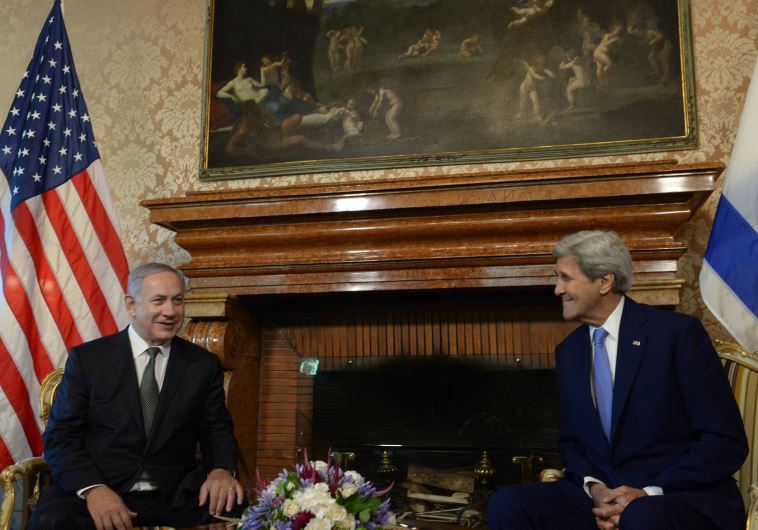Comment: Why is the Middle East so disappointed with Obama?
When it comes to the Palestinians though, there is even less clarity on what will be Trump’s vision for a resolution to the conflict.
 Netanyahu and Kerry meet in Rome in June.(photo credit: AMOS BEN-GERSHOM/GPO)
Netanyahu and Kerry meet in Rome in June.(photo credit: AMOS BEN-GERSHOM/GPO)